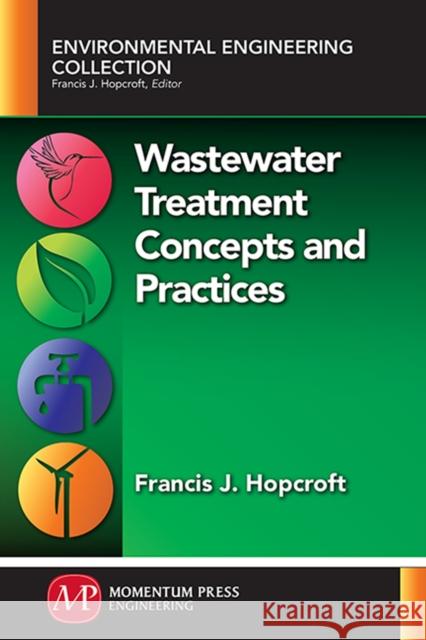Wastewater Treatment Concepts and Practices » książka
Wastewater Treatment Concepts and Practices
ISBN-13: 9781606504864 / Angielski / Miękka / 2014 / 165 str.
This book covers the chemistry and biology of wastewater treatment, as well as the more common techniques for treating wastewater to a water quality standard suitable for discharge.Wastewater Treatment Concepts and Practices will cover the chemistry and biology of wastewater treatment, as well as the more common techniques for treating wastewater to a water quality standard suitable for discharge. The treatment of wastewater, as distinguished from the treatment of potable water, is discussed in sufficient detail to allow an upper-level or graduate college student to quickly find a clear explanation of concepts embodied in the study of wastewater treatment. The intent is to provide a comprehensive reference manual that students can turn to for an understanding of concepts involved in specific research or design projects without the need to search multiple sources for each problem or issue that arises. In the first section a review of the key points of chemistry necessary for effective wastewater treatment are presented and discussed. A fundamental understanding of chemistry is an important part of understanding how wastewater treatment works. This is not a subject commonly favored by civil and environmental engineers. Fortunately, it is not necessary to be a chemist, or even particularly competent in the subject, overall, in order to be effective at designing suitable wastewater treatment processes. It is the intent of this volume to address the process of wastewater treatment; not the mechanics of the machinery and reactors used to do the work. No amount of machinery and reactor vessels will ever treat wastewater effectively unless the process of using the equipment is properly developed first and the equipment is properly utilized afterward.
The fundamental objective of wastewater treatment is to reduce the concentration of contaminants in the wastewater to such a degree that safe discharge to a receiving water, either surface water or groundwater, can be accomplished. Achieving that goal requires the application of several fundamental principles of engineering. Among those are chemistry, biology, hydraulics, fluid mechanics and mathematics of varying types. This book provides a synopsis of the basic fundamentals of those disciplines, as well as an outline of the use of those principles to solve specific wastewater engineering problems. This is the second in a series of volumes designed to assist with mastering the principles of environmental engineering. Inside this volume, the author addresses the process of wastewater treatment; not the mechanics or the machinery and reactors used to do the work. No amount of machinery and reactor vessels will ever treat wastewater effectively unless the process of using the equipment is properly developed first and properly utilized afterwards. A separate volume will address new and emerging technologies, updated regularly to cover those changes to the practice of wastewater treatment.











